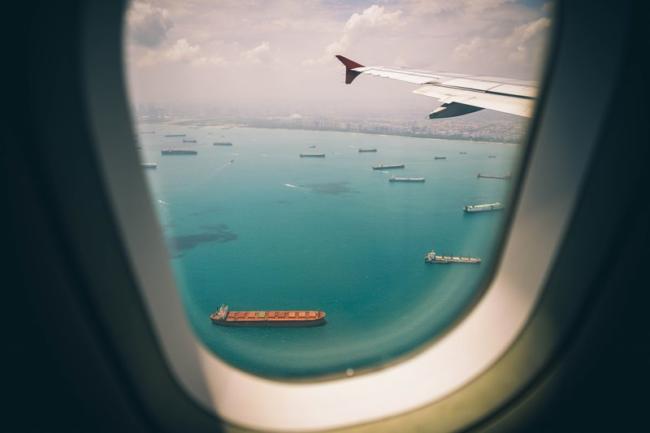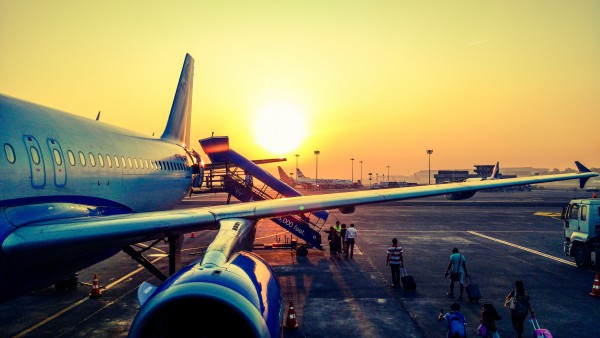What Brexit Could Mean For Travellers To and From the UK
Guest post by Martin Stokes
One of the (many) benefits afforded to UK citizens as a result of the United Kingdom being part of the European Union is that of free travel and movement. Anyone from any country within the European Union can travel to any participating country without harassment or hassle. This, as well as a number of generous laws such as the “open skies agreement” has resulted in an abundance of cheap flights, and by extension, extremely affordable holidays all over Europe, which previously weren’t possible.
This all stands to be lost if and when Brexit occurs. The same can be said for high standards of safety provided for travelers by the European Aviation Safety Agency as well as other aviation laws designed to protect consumers, such as Regulation EC 261, which allow travelers to claim missed connections compensation or if they’re flights are severely delayed.
With so much to lose, and so much uncertainty in the air, what can we expect come March 29 2019?
No Deal
At present there is currently no formal arrangements in place which will allow planes to fly freely between the UK and the EU after March 29 2019, but most of aviation’s big bosses, including those of leading airlines such as EasyJet and RyanAir, are confident that a deal will come to fruition. Johan Lundgren, chief executive of EasyJet, believes that flying will continue without interruption after Brexit. He says, “Nobody is suggesting, either the airlines or elsewhere, that they want the planes to stop flying.”
While this sentiment is optimistic and hopeful, Ryanair, the biggest budget flight operator around Europe, has warned of potential complications, and says there is a “distinct possibility” that flights would be enjoying limited airtime once Brexit occurs, and could remain grounded for an unknown period of time.
It’s worth noting that in the event that disruptions do occur once Brexit occurs, any airline that has sold airline tickets that it can no longer operate will have to, without exception, refund the purchased amount of the ticket. If however, you’ve booked hotels or cars in other countries outside of an airline’s website or services and a flight is affected, you’ll have to suffer the costs of this yourself, or communicate with external operators when trying to get a refund.
Will flight compensation still be available for those affected by flight disruption?
As mentioned in the first paragraph, EC261/2004 states that airlines have to pay amounts ranging between €250 and €600 for delays of more than three hours, unexpected cancellations or other disruptions that were a direct result of the airline’s actions, and not attributable to extraneous and extraordinary circumstances. But the looming event of Brexit threatens this protection.
Currently in Brussels, talks are underway that could dramatically reduce the rights that passengers have in the event of delays and disruptions at the hands of various airlines within Europe. These proposals include halving the payments for delays of under five hours on short flights (less than 1500km) and also increasing the payment threshold for mid- and long-haul flights to nine and 12 hours respectively. However it’s important to note that these measures are only being discussed in Europe. On the other side of the pond, the British government has stated that it has no intention of altering the rights of airline passengers or reduce any subsequent payouts that occur as a result of delayed flights. But when it comes down to whose say will reign supreme – the UK’s or the EU’s – before and after Brexit, we’ll have to wait until the date itself for the answer.
What About Visas?
One of the greatest worries in regards to travel is that UK and EU citizens will require visas to visit each other’s territories. While it’s unlikely that explicit visa will be required – the Brexit white paper said on the subject of travel to and from the EU that Britain “proposes reciprocal visa-free travel arrangements to enable UK and EU citizens to continue to travel freely for tourism in the future” – Brussels has proposed an online registration system that will apply to all third-country nationals, which the UK will be after Brexit.
The problem is that completely free movement cannot continue unabated, because under the current rules, EU citizens are allowed to move, work and live freely without consequence. However, after Brexit, since UK nationals won’t simply be allowed to pack up, move and work without a second thought, a system to determine travelers from would-be workers would have to be set up to differentiate them.
For non-European travelers the entry and document situation is quite different. Currently, visitors need a Standard Visitor Visa which costs £93, and this is unlikely to change. This is a forewarning of what UK travelers could face should the situation deteriorate completely. However it’s worth noting that the likelihood of this is very low.
Duty Free or Duty Fee?
It’s likely that once Brexit occurs that a hard limit will be re-imposed on goods that can be transferred between borders. In response to this, airports will likely need to reorganize their facilities. UK travelers will no longer be able to bring in large quantities of alcohol or other items such as tobacco from Europe without paying duty fees on it.







